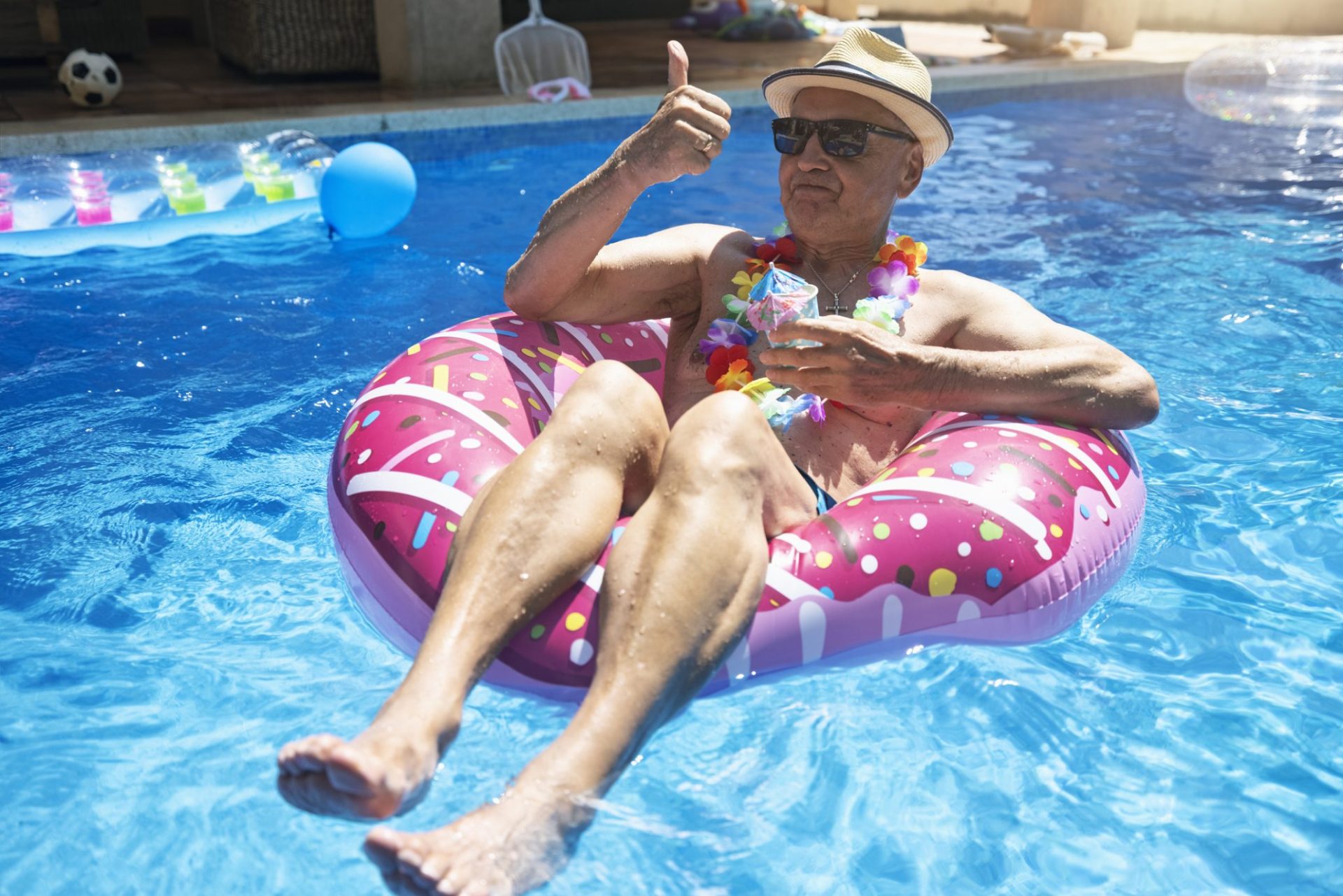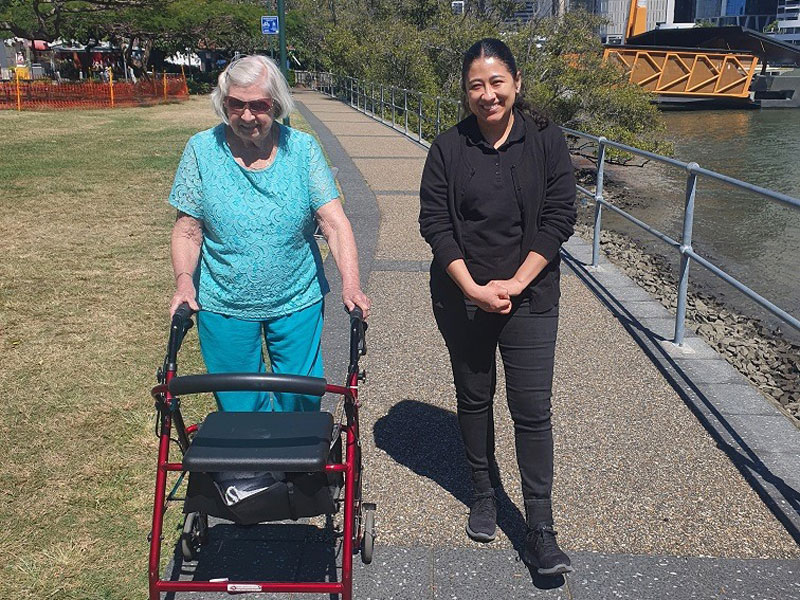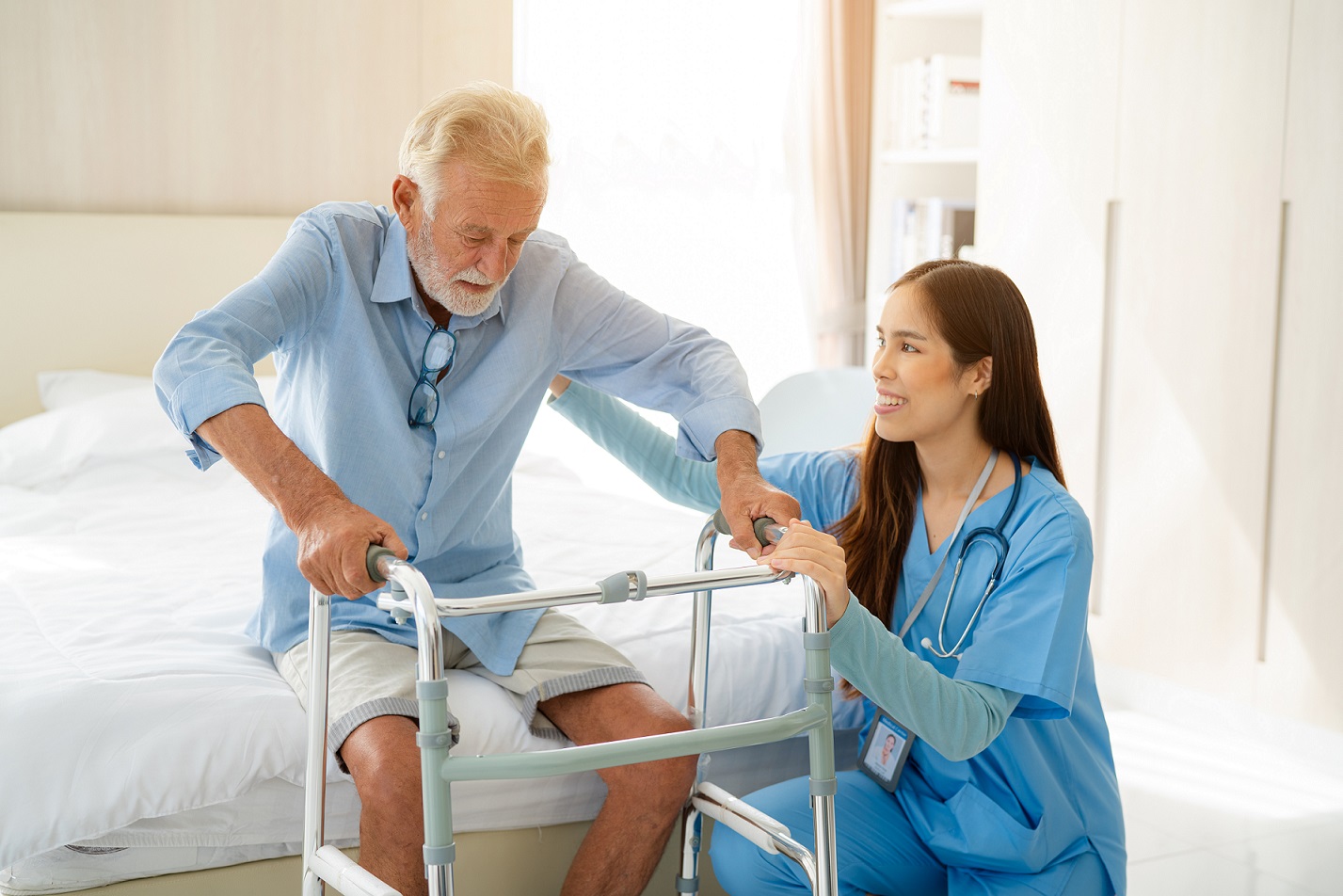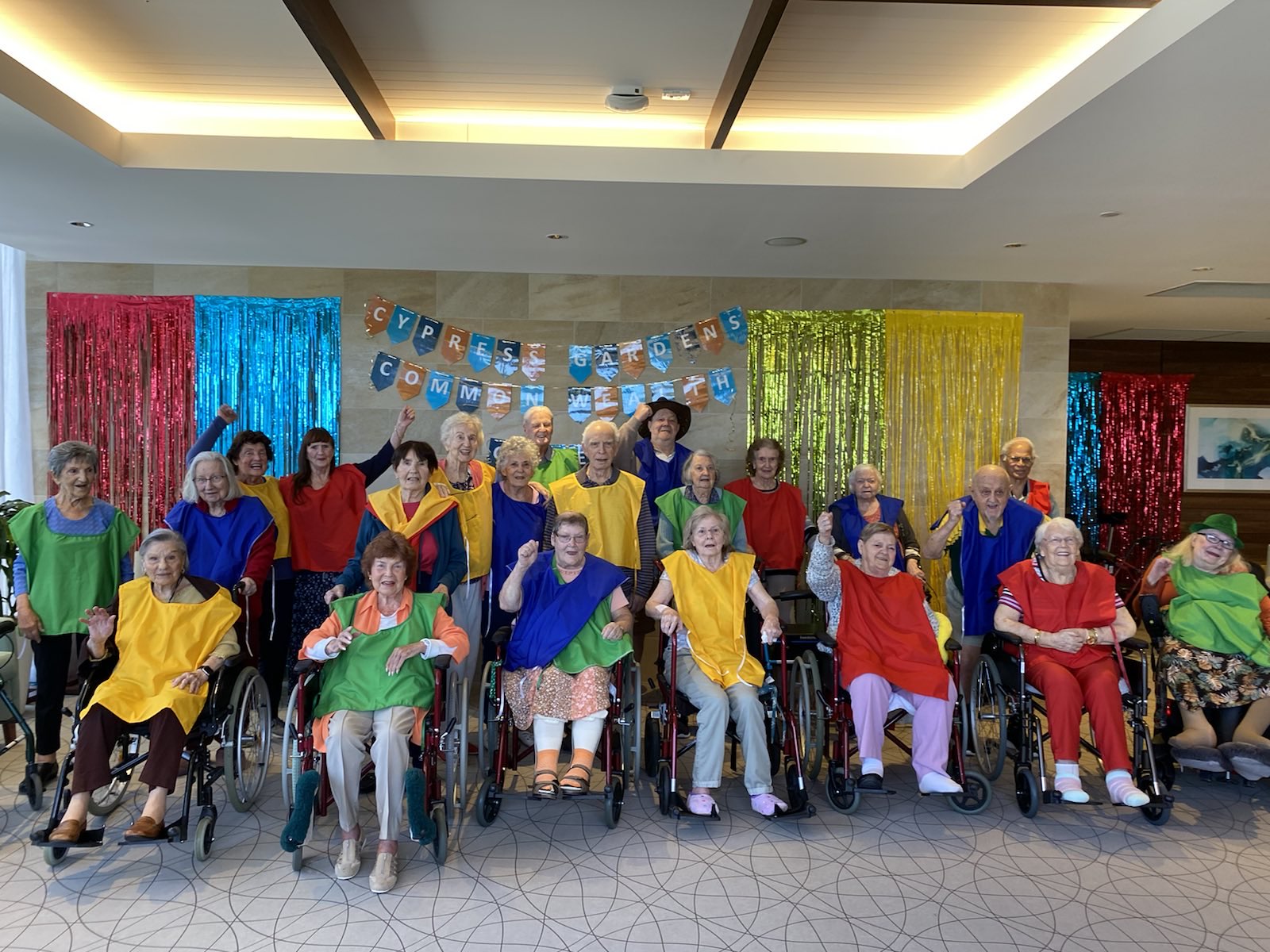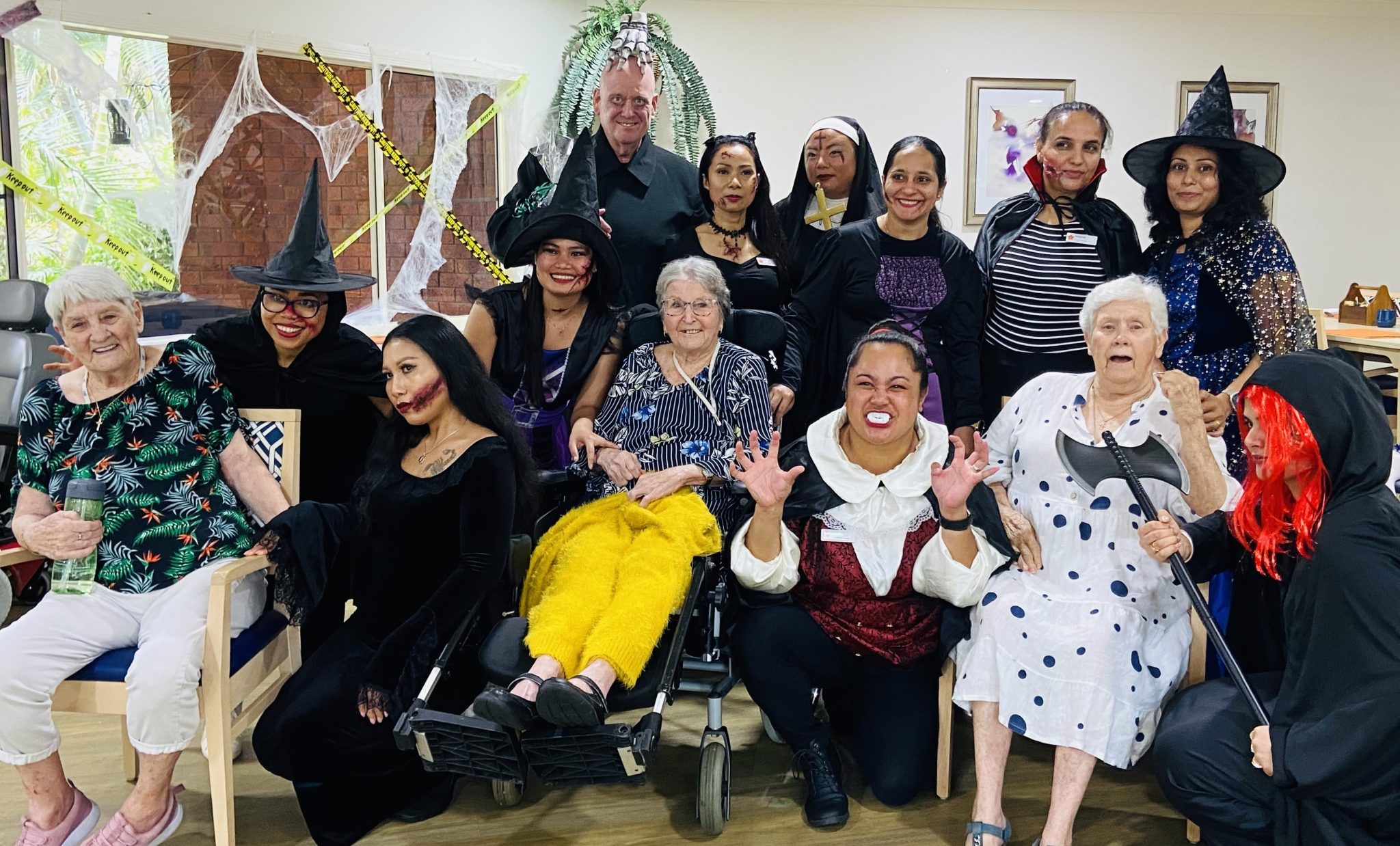As we hit the hottest time of the year, it brings along warmer weather and longer days. While this can be a time for enjoyment and outdoor activities, it’s also important to understand the unique challenges that heat poses, especially for seniors. Seniors can be more susceptible to the effects of heat and dehydration, so staying cool and hydrated during these warmer months isn’t just about comfort, it’s also about staying healthy.
Health risks for seniors in summer
Seniors face increased health risks during summer due to several factors. As we age, our bodies become less efficient at regulating temperature, and some might also have chronic medical conditions or take medications that affect their ability to handle heat. Dehydration, heat exhaustion, and heatstroke in seniors can be serious concerns, and they can creep up quickly. These conditions can lead to symptoms like dizziness, confusion, rapid heart rate, and even loss of consciousness.
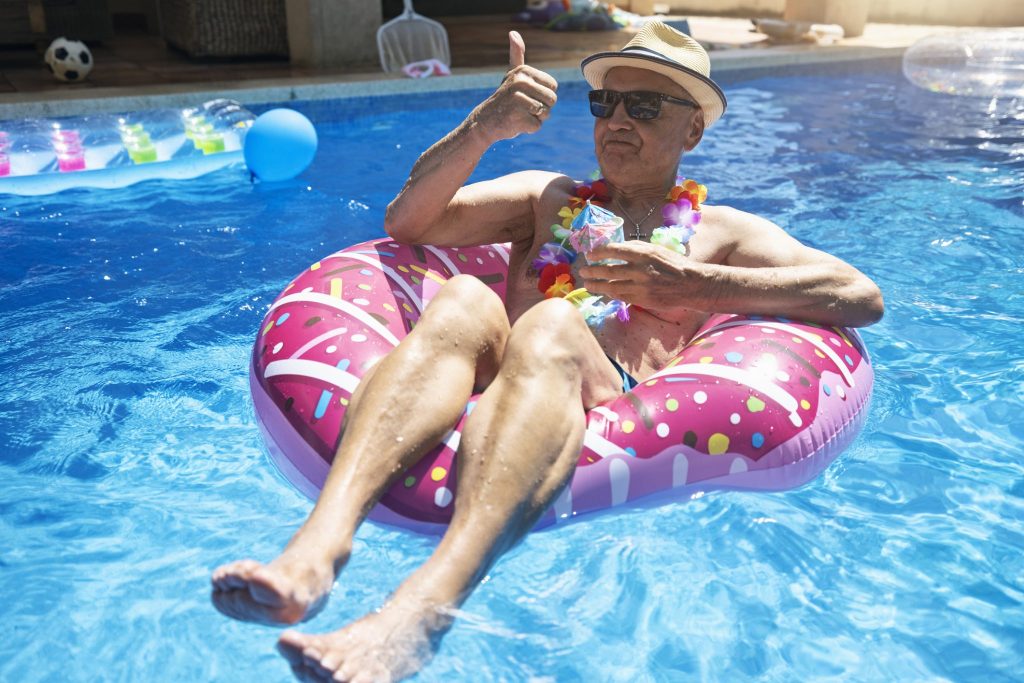
Dehydration
Dehydration occurs when the body loses more fluids than it takes in. It’s especially dangerous for seniors because they might not always feel thirsty, even when their body needs fluids. Dehydration symptoms include dry mouth, fatigue, dark-colored urine, dehydration headache, and dizziness.
Heat exhaustion
Heat exhaustion is a heatstroke symptom that can occur after exposure to high temperatures and inadequate fluid intake. Symptoms include heavy sweating, weakness, cold, pale and clammy skin, a fast but weak pulse, and fainting.
Heat stroke
Heatstroke is the most severe form of heat illness and is a medical emergency. It happens when the body is unable to regulate its temperature, and body temperature rises rapidly. Heatstroke symptoms include high body temperature, hot and dry skin, rapid pulse, and possible unconsciousness.
Burns
Another lesser known risk is touching surfaces that have been exposed to the hot sun, such as outdoor furniture, tiles, and astroturf, which can all retain a lot of heat, even in the early morning or late afternoon.
“This can cause burns to exposed skin or sometimes even through clothing or to soles of feet, if not wearing shoes,” says Maria O’Connor, Clinical Manager at TriCare Ashgrove.
“Some people may have reduced skin sensation or be otherwise unable to recognise how hot the surface is, and then a serious burn can occur, but not be noticed until much later.”
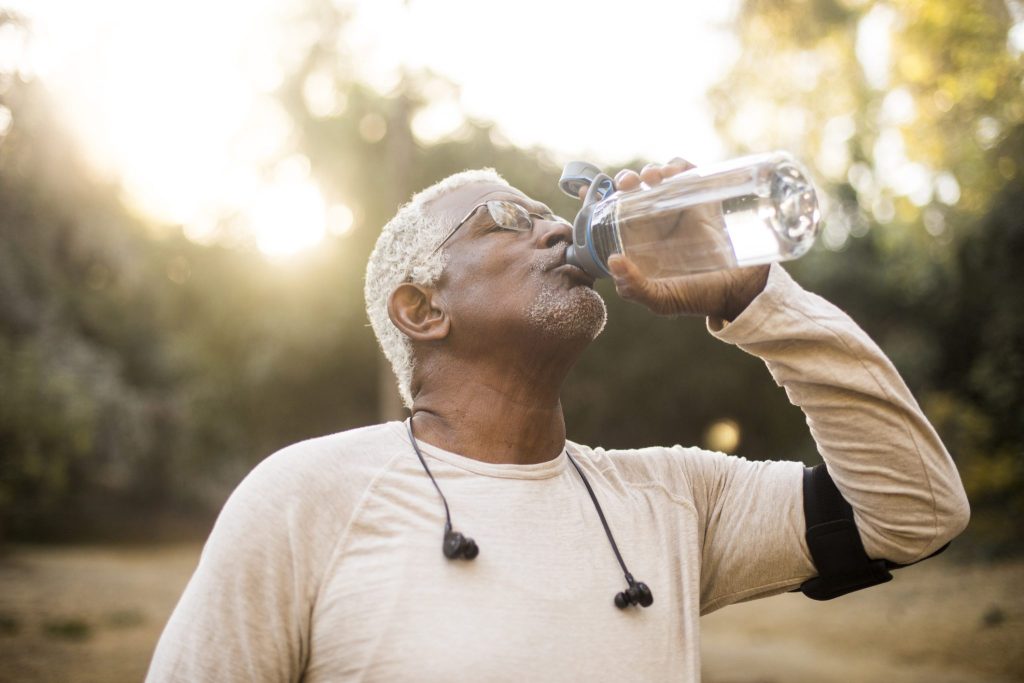
How to beat the heat
To combat the summer heat, seniors and their caregivers can take several steps:
- Stay hydrated. Drink plenty of fluids, preferably water, even if you don’t feel thirsty. Avoid caffeine and alcohol as they can lead to dehydration.
- Wear appropriate clothing. Opt for lightweight, light-coloured, and loose-fitting clothing. Dark colors absorb heat, and tight clothes can restrict circulation.
- Use fans and air conditioning. Stay in air-conditioned buildings as much as possible. If you don’t have air conditioning, spend time in public facilities like shopping malls or libraries that do.
- Avoid strenuous activities. Limit outdoor activities, especially midday when the sun is hottest. Plan any necessary outdoor activities for early morning or late evening.
- Take cool showers or baths. Taking a cool shower or bath can be an effective way to cool down quickly.
- Use sun protection. When outside, wear a wide-brimmed hat and use sunscreen to protect your skin from sunburn.
- Move outdoor furniture to fully shaded areas. Or arrange for shade to be fitted to areas frequently used during summer, and wear footwear when outside.
“Remember that a touch test is not a true indication of the actual temperature,” Maria advises. “A surface may feel slightly warm but if sat on for a longer period the retained heat could cause a burn to fragile skin.
What to do if you’re affected by heat
If you or a loved one start feeling the effects of the heat:
- Move to a cooler place. Find an air-conditioned room or shady area and rest. Avoid direct sunlight.
- Hydrate. Drink plenty of water or beverages with electrolytes to rehydrate your body.
- Cool down. Apply cool, wet cloths to as much of your body as possible, or take a cool bath. Use fans to help lower body temperature.
- Rest. Rest and avoid any strenuous physical activity until you feel better.
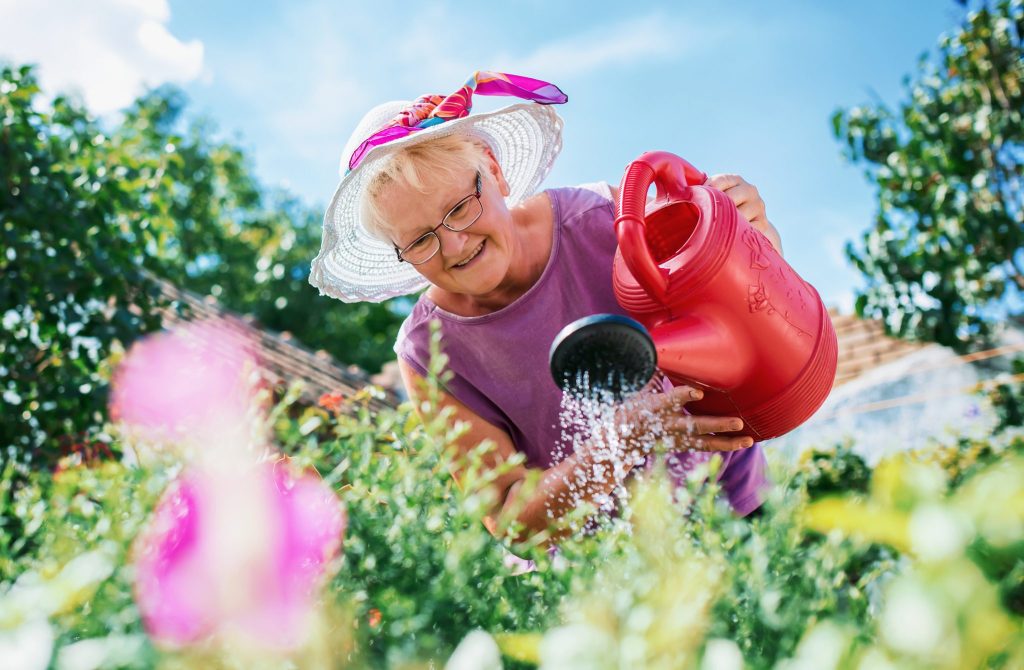
When to seek heatstroke or dehydration treatment
It’s important to recognise when professional medical assistance is needed, and to take action fast. If you or someone you know experiences any of the following symptoms, seek medical help immediately:
- High body temperature (above 38-39°C)
- Hot, red, dry, or damp skin
- Rapid, strong pulse or a fast, weak pulse
- Confusion, agitation, or slurred speech
- Loss of consciousness
- Difficulty breathing
- Chest pain or pressure.
Summer can be a wonderful time to enjoy and engage in various outdoor activities, but it’s essential to do so safely. Understanding the risks of high temperatures and taking steps to stay cool and hydrated can help prevent heat-related illnesses. Remember to recognise the signs of heat stress and know when to seek medical help. By taking these precautions, seniors can enjoy a healthy and comfortable summer season.
